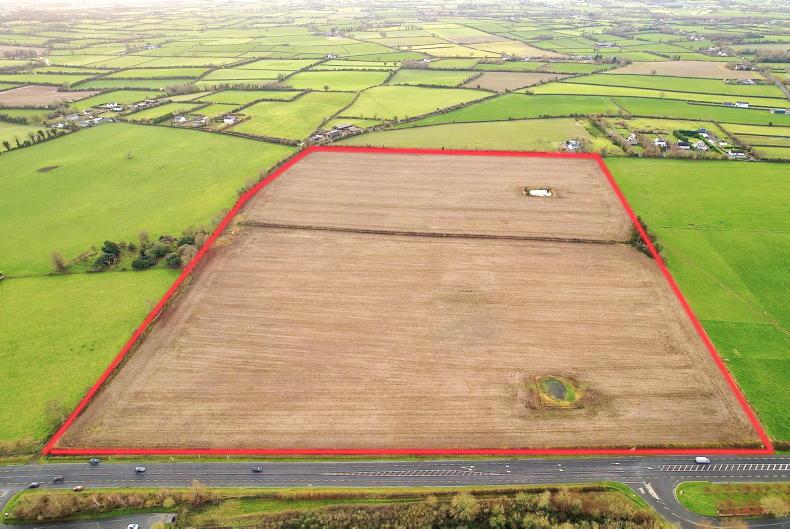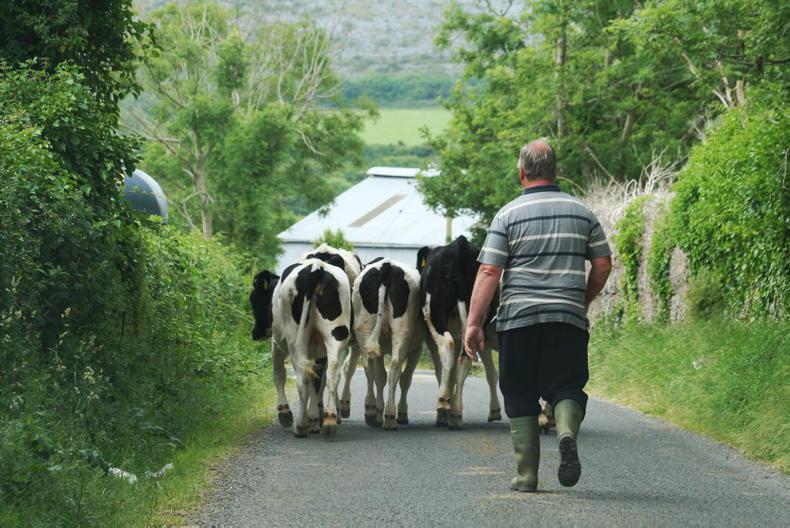“I leased out land at €400/ac on a seven-year lease in 2019. The tenant is now refusing to pay more than €200/ac for the last three years of the seven-year lease. What can I do? If I break the lease will it cost me more in legal fees and will I also have to repay the tax-free allowance I got? Separately, would the advice be to anyone leasing out land to consider all factors when deciding whom to lease to – eg price but also reliability of the leasee, how land will be farmed, left in good heart etc?”
Aisling replies
Your concern is well-founded and an issue that I am coming across more frequently in practice. If the tenant is in breach of the lease in not paying the amount of rent due on time, the lease normally provides that you can re-enter the property 14 days after the rent is due and follow the tenant for any losses. In terms of a clawback of the tax relief, there is no provision in the legislation for a clawback of relief already claimed. Any claim to relief on a new lease is dependent on that new lease satisfying the conditions of the relief.
While there are many potential benefits to be gained from leasing, there are also a number of challenges. Both parties enter into an arrangement which must be honoured regardless of changing circumstances.
What if the economics of farming change dramatically and the lease cost is no longer affordable? What are the legal obligations of the parties involved?
In a lease agreement, it is not open to either party to break the terms of the lease during the currency of the lease unless the parties agree. This is normally catered for with a rent review clause in the lease that reviews the rent payable depending on what price is payable for renting land on the open market. I am coming across more leases that provide for a variable rent which is dependent on milk price. For example, there is a provision for a basic rent of X per acre and if the milk price exceeds Y per litre, there is a top-up of the rent. This formula allows both parties to share in any uplift in milk price but equally protects the tenant from falls in milk prices.

What happens if the user, the lessee, walks away from the deal and does not pay?
He/she could be sued for the balance of rent due for the term of the lease. Legally, parties have a duty to mitigate their losses so the landowner should try to secure a replacement tenant for the land.
What happens if the lessee does not pay the agreed amount but continues to occupy the land or leave stock on it?
As noted at the start, if the tenant is in breach of the lease in not paying the amount of rent agreed, the lease normally provides that the owner can re-enter the property 14 days after the rent is due and follow the tenant for any losses. If the term of the lease has expired and the farmer will not vacate the land, the landowner can issue proceedings for ejectment for overholding pursuant to section 72 of Deasy’s Act 1860. If the landowner is successful he/she normally gets an order for costs whereby the tenant has to cover both sets of legal costs. However, this isn’t much good if the tenant hasn’t the means to pay or any assets as security so some background checks should be done beforehand to verify the position.
If farming profits were to improve substantially from the circumstances that applied at the time the lease was drawn up and the landlord wanted to withdraw from or renegotiate the lease, how is the tenant farmer protected?
The IFA Master lease provides that any increase in rent is a matter to be agreed upon between the farmer and the landowner. If they cannot agree, the matter is referred to an independent surveyor who will determine the rent due.
The IFA Master lease provides that the independent surveyor shall determine an annual rent which, in his opinion, will be based on the full open market rent of the farm let as a whole.
No account will be taken of the fact that the farmer may have carried out improvements to the land or indeed let the land fall into bad condition or disrepair.

Agri solicitor Aisling Meehan. \ Donal O' Leary
Where a lease was drawn up with conditions that apply to, say, the non-use of the access to the lessor’s yard or residence, how can such issues be resolved in the event of such a breach?
If the lease provides for no access to the landowner’s yard or residence entrance, then the farmer has no right to do so.
It would generally be agreed at the outset of the lease how the farmer was to gain access to the land and this would be incorporated into the written lease.
Most leases provide dispute resolution mechanisms and it depends on the terms of the lease as to how disputes will be resolved. For example, the IFA Master lease provides that any dispute under the lease shall be conclusively determined by an independent surveyor. The surveyor must have 10 years’ post-qualification experience in the leasing of agricultural land.
The appointment of the surveyor to make a decision on the matter in dispute is a matter to be agreed between the landowner and the tenant. If they cannot agree, they can apply to the president of the Society of Chartered Surveyors of Ireland to appoint such a person.
The IFA Master lease provides that the independent surveyor shall give notice in writing of their decision to both parties within 60 days of their appointment or such lesser period as agreed between the parties.
Disclaimer: The information in this article is intended as a general guide only. While every care is taken to ensure accuracy of information contained in this article, Aisling Meehan, Agricultural Solicitors does not accept responsibility for errors or omissions howsoever arising. E-mail aisling@agrisolicitors.ie
Read more
Wills: ‘the way to navigate things is talking’
Farm transfers: questions answered on contract rearing and leases
“I leased out land at €400/ac on a seven-year lease in 2019. The tenant is now refusing to pay more than €200/ac for the last three years of the seven-year lease. What can I do? If I break the lease will it cost me more in legal fees and will I also have to repay the tax-free allowance I got? Separately, would the advice be to anyone leasing out land to consider all factors when deciding whom to lease to – eg price but also reliability of the leasee, how land will be farmed, left in good heart etc?”
Aisling replies
Your concern is well-founded and an issue that I am coming across more frequently in practice. If the tenant is in breach of the lease in not paying the amount of rent due on time, the lease normally provides that you can re-enter the property 14 days after the rent is due and follow the tenant for any losses. In terms of a clawback of the tax relief, there is no provision in the legislation for a clawback of relief already claimed. Any claim to relief on a new lease is dependent on that new lease satisfying the conditions of the relief.
While there are many potential benefits to be gained from leasing, there are also a number of challenges. Both parties enter into an arrangement which must be honoured regardless of changing circumstances.
What if the economics of farming change dramatically and the lease cost is no longer affordable? What are the legal obligations of the parties involved?
In a lease agreement, it is not open to either party to break the terms of the lease during the currency of the lease unless the parties agree. This is normally catered for with a rent review clause in the lease that reviews the rent payable depending on what price is payable for renting land on the open market. I am coming across more leases that provide for a variable rent which is dependent on milk price. For example, there is a provision for a basic rent of X per acre and if the milk price exceeds Y per litre, there is a top-up of the rent. This formula allows both parties to share in any uplift in milk price but equally protects the tenant from falls in milk prices.

What happens if the user, the lessee, walks away from the deal and does not pay?
He/she could be sued for the balance of rent due for the term of the lease. Legally, parties have a duty to mitigate their losses so the landowner should try to secure a replacement tenant for the land.
What happens if the lessee does not pay the agreed amount but continues to occupy the land or leave stock on it?
As noted at the start, if the tenant is in breach of the lease in not paying the amount of rent agreed, the lease normally provides that the owner can re-enter the property 14 days after the rent is due and follow the tenant for any losses. If the term of the lease has expired and the farmer will not vacate the land, the landowner can issue proceedings for ejectment for overholding pursuant to section 72 of Deasy’s Act 1860. If the landowner is successful he/she normally gets an order for costs whereby the tenant has to cover both sets of legal costs. However, this isn’t much good if the tenant hasn’t the means to pay or any assets as security so some background checks should be done beforehand to verify the position.
If farming profits were to improve substantially from the circumstances that applied at the time the lease was drawn up and the landlord wanted to withdraw from or renegotiate the lease, how is the tenant farmer protected?
The IFA Master lease provides that any increase in rent is a matter to be agreed upon between the farmer and the landowner. If they cannot agree, the matter is referred to an independent surveyor who will determine the rent due.
The IFA Master lease provides that the independent surveyor shall determine an annual rent which, in his opinion, will be based on the full open market rent of the farm let as a whole.
No account will be taken of the fact that the farmer may have carried out improvements to the land or indeed let the land fall into bad condition or disrepair.

Agri solicitor Aisling Meehan. \ Donal O' Leary
Where a lease was drawn up with conditions that apply to, say, the non-use of the access to the lessor’s yard or residence, how can such issues be resolved in the event of such a breach?
If the lease provides for no access to the landowner’s yard or residence entrance, then the farmer has no right to do so.
It would generally be agreed at the outset of the lease how the farmer was to gain access to the land and this would be incorporated into the written lease.
Most leases provide dispute resolution mechanisms and it depends on the terms of the lease as to how disputes will be resolved. For example, the IFA Master lease provides that any dispute under the lease shall be conclusively determined by an independent surveyor. The surveyor must have 10 years’ post-qualification experience in the leasing of agricultural land.
The appointment of the surveyor to make a decision on the matter in dispute is a matter to be agreed between the landowner and the tenant. If they cannot agree, they can apply to the president of the Society of Chartered Surveyors of Ireland to appoint such a person.
The IFA Master lease provides that the independent surveyor shall give notice in writing of their decision to both parties within 60 days of their appointment or such lesser period as agreed between the parties.
Disclaimer: The information in this article is intended as a general guide only. While every care is taken to ensure accuracy of information contained in this article, Aisling Meehan, Agricultural Solicitors does not accept responsibility for errors or omissions howsoever arising. E-mail aisling@agrisolicitors.ie
Read more
Wills: ‘the way to navigate things is talking’
Farm transfers: questions answered on contract rearing and leases











SHARING OPTIONS